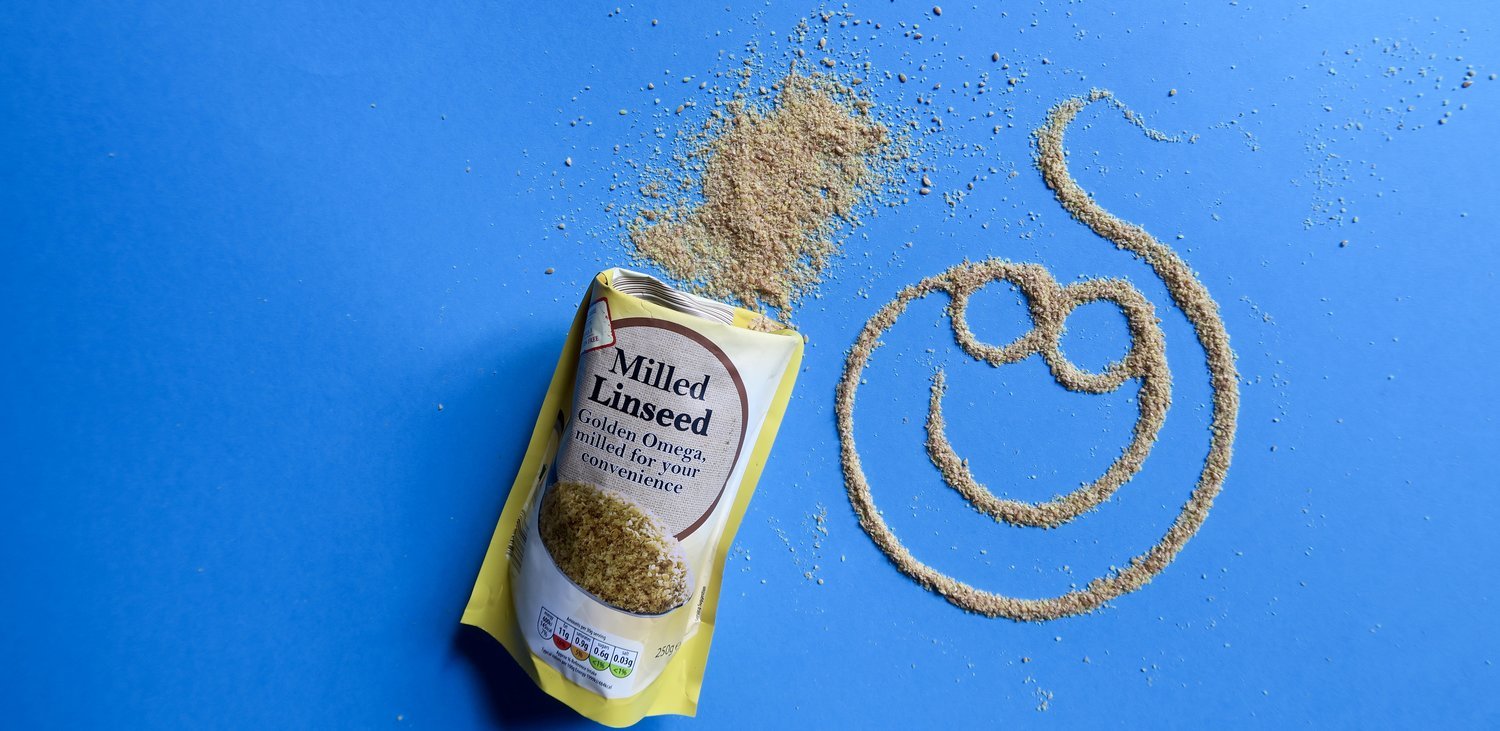Why linseeds are a must in your menopause diet
Call them what you like, flaxseeds, or linseeds, they are a peri-menopausal girls best friend.
With no known serious side-effects and a bevy of benefits, these golden-brown, crumb-sized linseeds are healthy at the best of times but particularly so, when a woman is getting on the menopause highway. Not a ‘miracle food’ but linseeds are a fabulously healthy food supplement that we recommend for dealing with many menopause symptoms.
6 Fabulous Facts about Flaxseeds
What is flaxseed, or is it linseed?
The Latin name for the cultivated plant is linum usitatissimum, meaning most useful, and it certainly is. So, what's the difference between linseed and flax seed? Linseed and flax seed are often confused. Flax is grown as a fibre plant that is used for linen. Linseed is grown for its seed and to make oil. Seeds from the plants have been used for thousands of years. Now it's more widely-grown for the health benefits and the linseed oil inside. The two types of linseeds, the gentler golden yellow and brown seeds have the same nutritional value.
What’s so good about linseed?
These powerhouse seeds, chock-full of omega-3 and 6, fibre, protein, magnesium and calcium, have a host of health benefits. For menopausal women who’ve lost the protection of oestrogen, linseeds help protect your heart, lower ‘bad’ cholesterol, reduce the risk of some cancers and reduce some menopause symptoms. So much goodness in so little a seed!
Hold that hot flush, thank you!
Your oestrogen and progesterone levels decline in perimenopause causing hot flushes for many. Adding linseeds to your daily diet may help to reduce menopause symptoms. Linseed contains phytoestrogens (isoflavines) that mimic the effects of the body’s oestrogen, albeit in a weaker version. Conflicting evidence about whether or not the isoflavines in linseed reduce hot flushes. A recent study found it’s more likely to be the high levels of omega-3 in linseed that can help relieve the heat and frequency of hot flushes. Omega-3 works on the brain’s messengers, the neurotransmitters, muting the messages from the brain’s control centre telling the rest of your body to respond to apparent surge in temperature. Fewer messages may mean fewer flushes!
What’s the best way to eat linseed?
Eating the seed whole, husk and all, means they can pass undigested through your body. Buy ready milled seeds such as Linwoods Milled Organic seeds (which also come with added flavours for those who find the nutty taste too much), or grind your own in a coffee or spice grinder, as you need them, to remove the hard, outer husks. Aim to eat a tablespoon of crushed flax seeds daily. Make sure you drink plenty of water, linseeds absorb water and if you’re not drinking enough liquid you may end up constipated.
linseeds have a nutty flavour and are best added to foods such as cereals, salads, smoothies, porridge, yoghurt, juice or sprinkled on soups and salads. Seeds can go rancid so they’re best stored in the fridge.
If seeds aren’t your thing, take flax in an oil, such as Viridian Organic Golden Flaxseed or as a capsule, try Nature’s Aid Capsules.
Linseed may improve skin and hair.
Farmers used to feed linseed oil to cows to get glossy coats and it’s used to polish and protect wood. Linseeds’ moisturising properties could benefit your drying oestrogen- deprived, menopause skin and hair. Linseeds contain healthy Alpha-Linolenic Acid (ALA)fats, which if taken regularly, can help deal with dry, flaky skin and hair. Some may find that linseed can help with hair growth. Take it internally as seeds or oil, or use externally, adding it to essential oils to make a nourishing moisturiser for skin and scalp.
Benefits your bowel movements!
High in fibre and low in carbohydrates, linseeds help quash the feeling of hunger and stop sugar craving. The lignans and soluble fibre in flax help keep your digestive system and bowels healthy but be aware that linseeds may act as a laxative. Oils contain the omega-3 fatty acids but ground seeds will deliver the full quota of health benefits including fibre.









